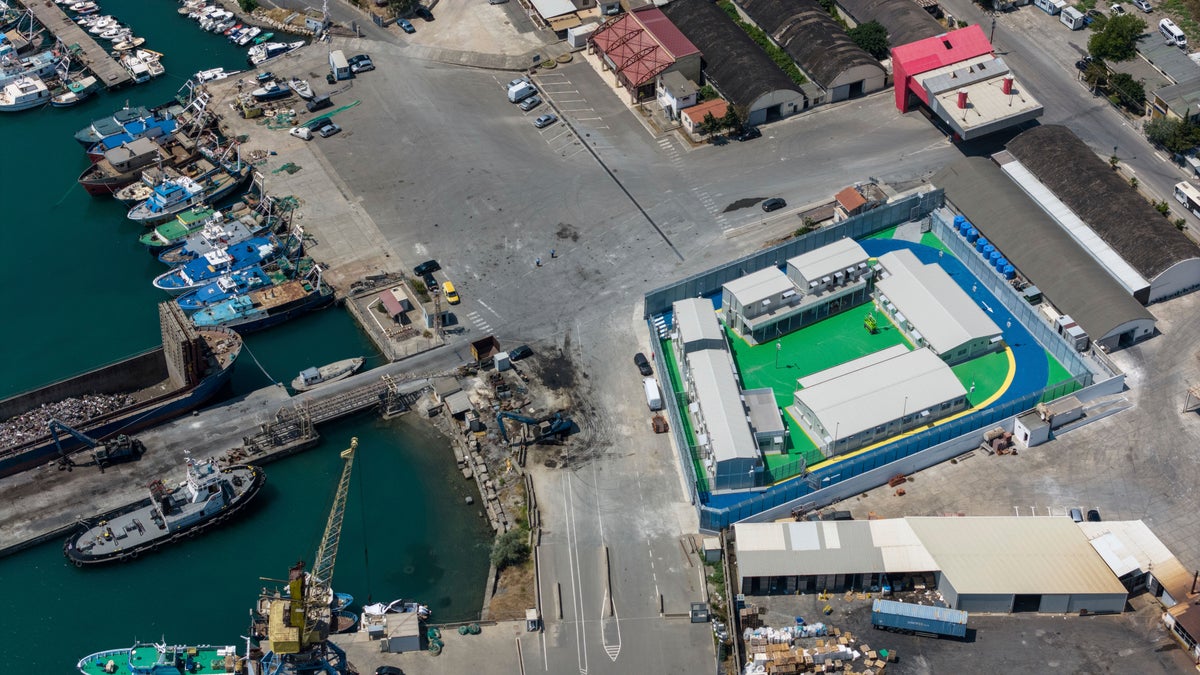
Support truly
independent journalism
Italian officials confirmed that Italy’s controversial new migrant processing centers in Albania, o riginally scheduled to open Thursday, won’t be operational for several more weeks because of construction delays.
Cabinet undersecretary Alfredo Mantovano cited the hot weather, which has forced work pauses during the hottest times of the day at the Gjader site, as contributing to the overall delay in the opening of the centers. The other center in In Shengjin has been ready since May.
An Italian interior ministry spokesman confirmed that Mantovano’s assessment of a weekslong delay, first made on the sidelines of a July 24 conference, remained accurate Thursday when the centers were originally supposed to have opened.
Premier Giorgia Meloni and Albanian Prime Minister Edi Rama inked the controversial agreement last year, under which some adult male migrants rescued at sea while trying to reach Italy would be taken instead to Albania while their asylum claims are processed. Italy has long demanded that European countries shoulder more of the burden of housing and processing migrants trying to reach Europe.
Those who are sent to Albania will retain their right under international and European Union law to apply for asylum in Italy and have their claims processed there, but their movement in and out of the centers in Albania will be restricted.
The deal has been e ndorsed by European Commission President Ursula von der Leyen as an example of “out-of-box thinking” on tackling the issue of migration into the European Union. But Amnesty International and other human rights groups have blasted the deal, saying it would lead to arbitrary and prolonged detentions and that the 670 million euros ($730 million) Italy has budgeted for the plan would be better spent on reinforcing migrant processing structures in Italy.
“It is shameful that, despite all the criticism and concerns raised by human rights organizations, the Italian government has decided to go ahead with this agreement,” Eve Geddie, director of Amnesty's European institutions office, said in a statement.







